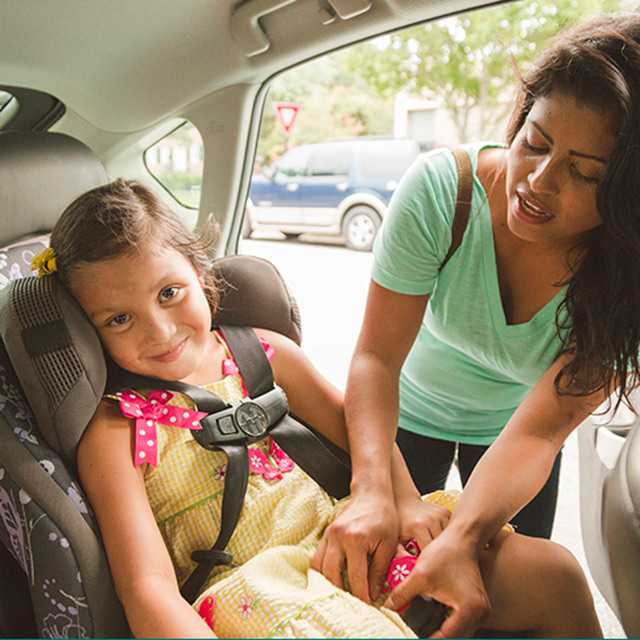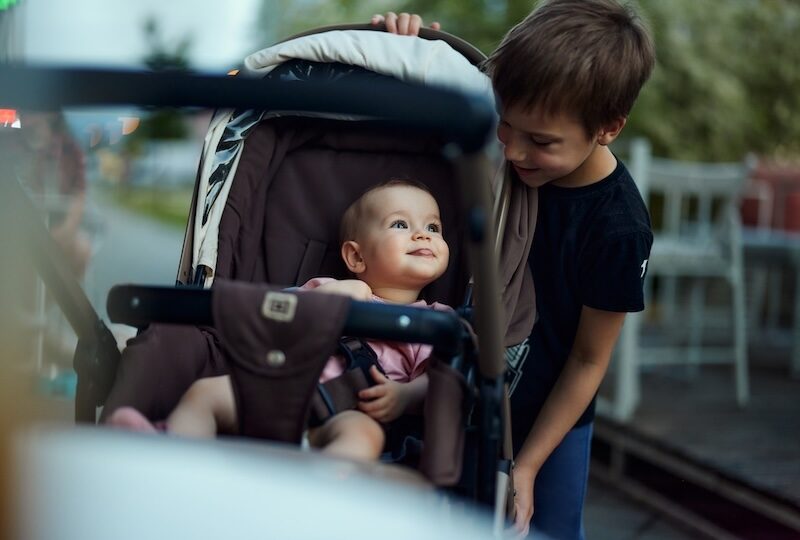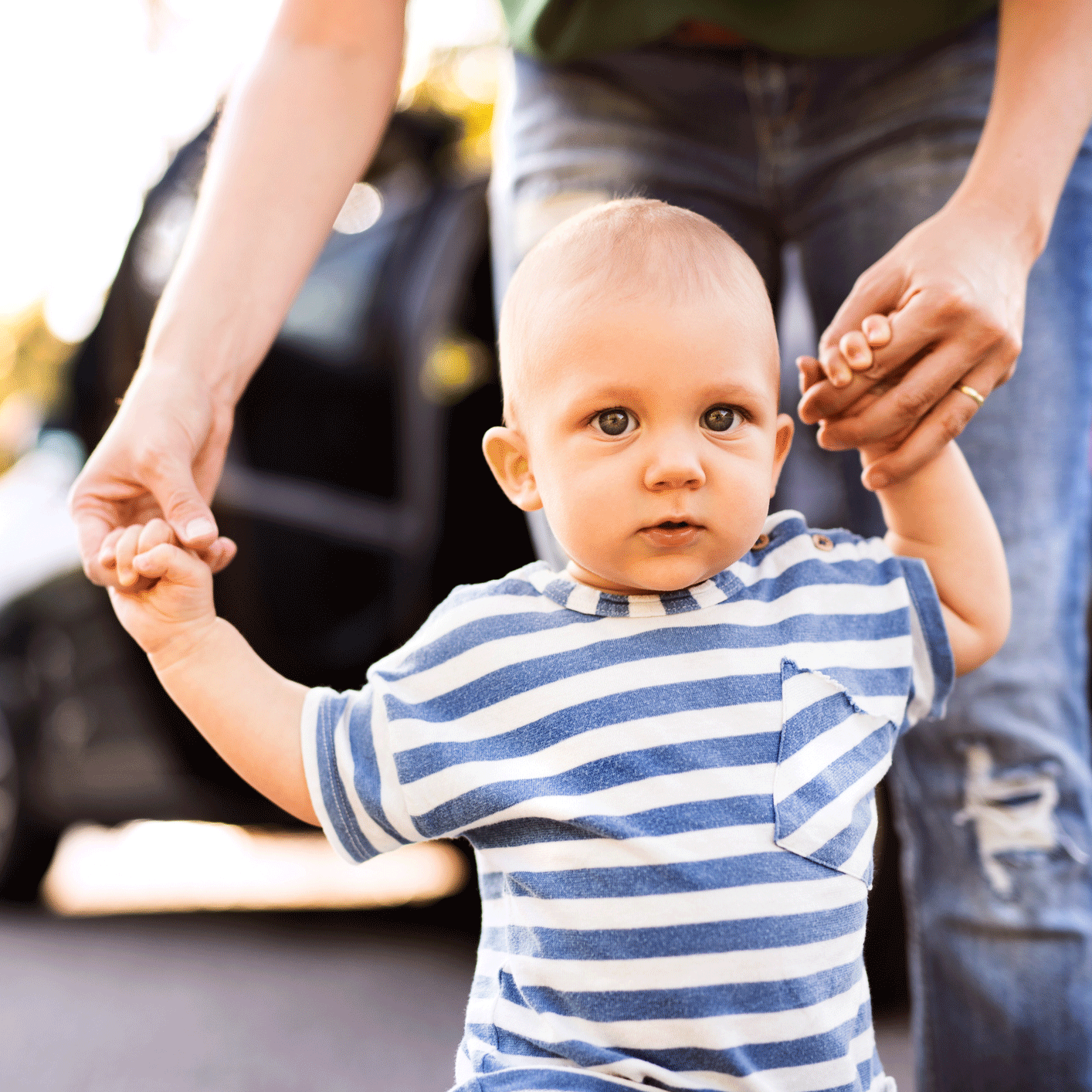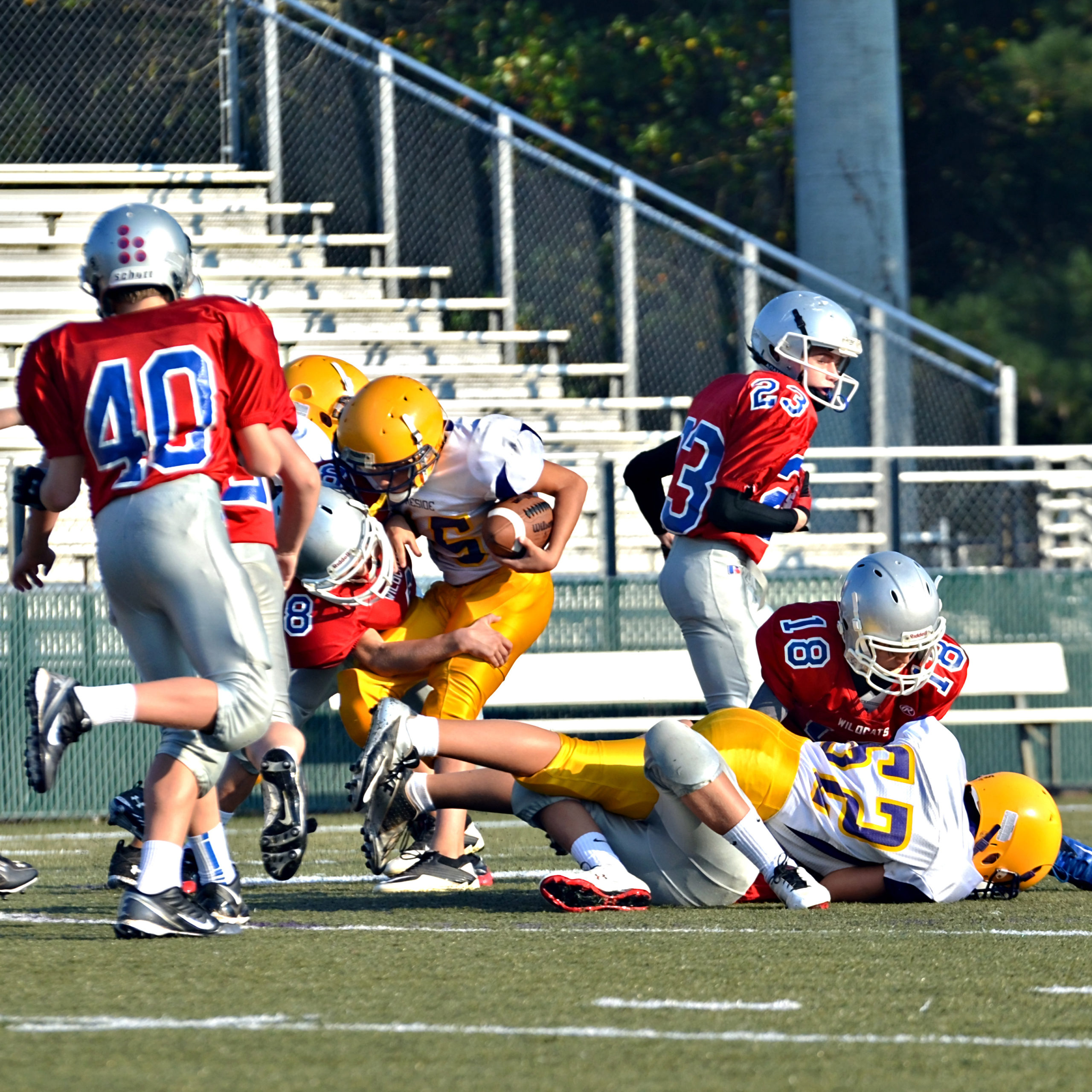Hot cars, stuffy strollers: Smart steps for parents to remember during hot weather.
On hot summer days, it’s especially important for parents and caregivers to be aware of how sensitive young children are to heat, and adapt some smart safety steps to help prevent heat-related injuries and deaths.
“Hot car deaths are 100% preventable,” stressed Stacey Pecenka, manager of the Trauma Injury Prevention Program at Monroe Carell Jr. Children’s Hospital at Vanderbilt. But adults need to recognize how quickly children in cars can succumb to heat.
“In only 10 minutes, temperatures inside a vehicle can heat up to dangerous levels. It doesn’t even have to be hot outside to make the car dangerously hot for a child,” Pecenka said. Even on cooler days closer to 70 degrees, children can experience vehicular heatstroke.
Pecenka said most baby and child deaths in hot cars happen when a child is unknowingly left in the car, or when a young child gained access to the vehicle on their own. One of the most important safety steps is to keep cars locked and keys out of reach of children. The chances of accidentally leaving a child in the car tends to be higher “when there is a change in routine and parents are distracted and forget that a child is in the back seat.”
The effect of a hot car on a child’s body can lead to serious harm and even death.
“It’s a type of hyperthermia, where the body can’t cool off fast enough,” she explained. “In a hot car, the child experiences prolonged exposure to high temperatures, which can lead to heat stroke and death. Once the core body temperature reaches about 104 degrees, heatstroke begins to affect the child. A child’s body heats up four times faster than an adult.”
Keeping strollers cool
There’s another situation that can cause babies and toddlers to overheat: Think of the common sight of baby strollers and carriers draped with blankets to shield infants and toddlers from the elements.
That can lead to a child overheating.
“The one thing we do to keep our babies safe may also be one of the most dangerous,” Pecenka cautioned. “Even the thinnest of cloths or covers over the stroller or carrier can reduce air circulation and create a greenhouse effect in the enclosed space, potentially leading to dangerously high temperatures inside the stroller.”
“If (the baby’s) cheeks are flushed, if they’re sweating, if they’re warm to the touch — that’s probably too hot,” Pecenka said.
“Good ventilation is important for the comfort and safety of a child, so think about the alternatives to coverings on hot days,” she added. “It’s important to be mindful of the temperatures, and it’s especially important to protect your child from the damaging rays of the sun. Use a sun hat and sunscreen.”
Strollers can provide shade with canopies, making them great for summer walks and other outdoor activities, but it’s important to not park strollers in direct sunlight, to prevent overheating. Stroller fans are helpful for air circulation, but parents should be cautious about where to place the fan in the stroller, to avoid accidents.
Fortunately there are habits that can lower the chances of a child being left in a car, or becoming too hot riding in a stroller.
Tips for avoiding hot car-related injuries
- Never leave your child alone inside the car, even for a minute. Rolling windows down or parking in the shade does not do much to cool the interior temperature of the vehicle.
- If you see a child alone in a locked car, act immediately and call 911. A child in distress due to heat should be removed from the vehicle as quickly as possible and rapidly cooled. In Tennessee, it is illegal to leave your child unattended in a car. The Tennessee Good Samaritan Law protects people who act to rescue a child or animal trapped in a vehicle. Before breaking a window, they must call 911 or the fire department.
- To help avoid forgetting a child in a car, use cell phone or computer reminders to make sure children have been dropped off at day care or wherever they are supposed to be.
- If your child is missing, check vehicles and trunks first.
- Teach your children to never play inside vehicles.
- Be sure to lock all the doors and windows of vehicles on your property.
- Look before you lock. Get into the routine of always checking the back seats of your vehicle before you lock it and walk away. Monroe Carell has free hangtags available in the Family Resource Center on the second floor. The tags are provided by the Tennessee Secretary of State to serve as a visual reminder to check the back seat.
- Get in the habit of keeping a stuffed toy or other memento in your child’s car seat, then move it to the front seat as a visual reminder when the baby is in the back seat. Or place your phone, briefcase or purse in the back seat when traveling with your child. You are more likely to remember to take your child and these multiple items from the back seat when they are together.
- Have a plan with your child care provider. If your child does not show up to day care or school without prior notice, someone should call you to locate the child. Have your child care provider call if your child is more than 10 minutes late.
Tips when using strollers and carriers to avoid heat-related injuries
- Appropriate clothing can provide great relief from the heat. Dress children in light, loose-fitting clothing to prevent them from overheating.
- Keep your child in the shade when outside.
- Make sure your child is cool during car rides.
- Keep your child hydrated. Water is a great tool for lowering body temperature and preventing the onset of hyperthermia (overheating).
- Find a stroller that has a canopy with an opening in the back to keep air moving.
- Frequently check on your child: When walking or jogging with a child in a stroller, check in every 10-15 minutes.

Protecting your children
The Injury Prevention Program at Monroe Carell Jr. Children’s Hospital at Vanderbilt is a nationally recognized program that aims to reduce traumatic injuries among children and promoting safe behaviors in the community.




